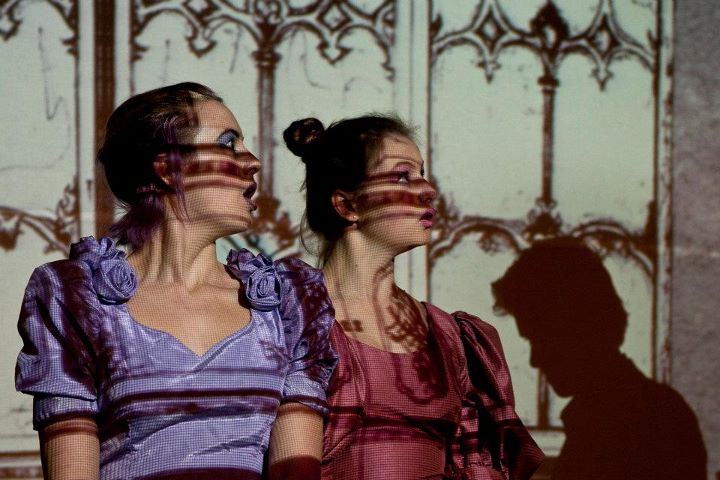Showing @ Trinity Apse, Edinburgh, until Sat 26 Nov
We seem to be a nation divided on the royalist approach to rule; regarded as either powerless figureheads or symbols of heritage, the elite appear crazed and corrupt if looked at through the eyes of outlandish Gothicism. This is what Mervyn Peake’s trilogy so expertly frames, and this sense of otherworldliness is attempted, and almost achieved, by Hamish Kallin’s production for Theatre Paradok on the artist’s centenary year.
Using John Constable’s 1992 adaptation, the play follows Titus (Jonathon Blaydon), heir to the throne of the House of Groan, from birth to adulthood. Tracking his relationship alongside Steerpike (Billy Watt), a calculating kitchen boy who aims to disrupt the royal order, the play is a plunge into the gothic depths of Peake’s original nightmarish vision.
His dark quasi-fantasy is a challenging undertaking for most seasoned directors, so it’s commendable that Kallin has selected it for this student production. The venue, a looming church hall with towering arches and Romanesque vaults, really gives the performance its menacing presence and soul, echoing the bellowing laughs and cries from the play’s ghoulish characters. Accompanied by sinister music-box melodies and macabre sound effects, Kallin drags us into Peake’s world with thickset force.
But it’s the simple things that let down this fairly accomplished production. The use of space feels uninspired; the company have a chance to fully utilise this remarkable venue, yet instead limit its depth by staging the action in front of a projector which reels through shots of shifting seasons, Poe-esque animations and eerie backlights. At times, characters lurk and hang from the walls, and a lot of the action takes places in the aisles, but it feels forced and formulaic. Clumsy audience positioning and a failure to enunciate offer an altogether different show depending on where you are sitting. So the engaging sections of the production are diluted by frustratingly avoidable errors; while the aesthetic immortalises Peake’s original descent into royal traditionalism, it lacks the edge and sharpness a tale such as this demands.



Comments